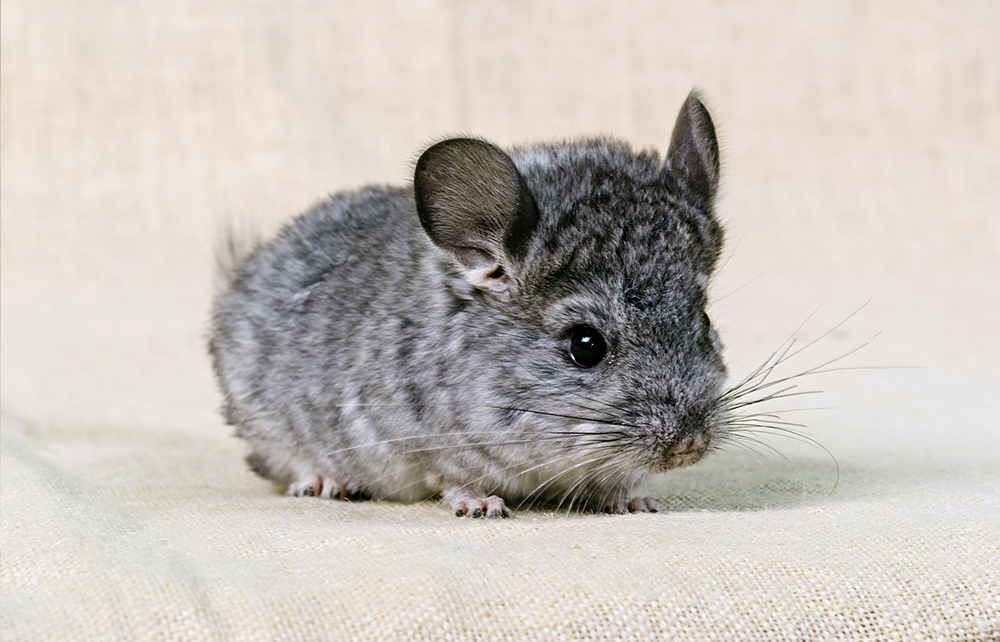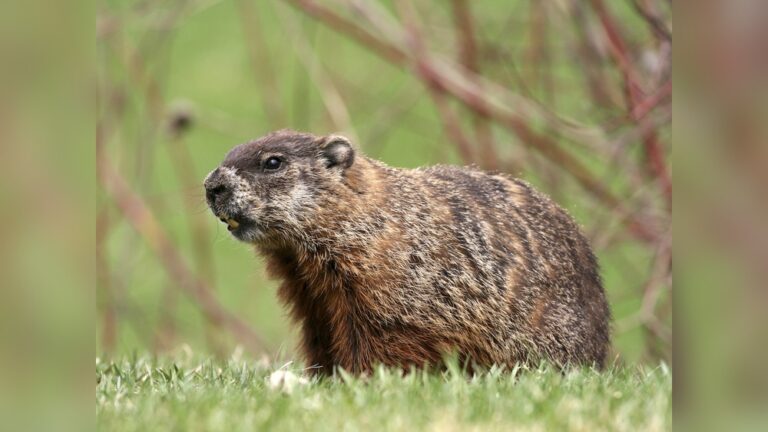Are Chinchillas Nocturnal: Unveiling Their Nighttime Secrets
Have you ever wondered when your chinchilla is most active? Understanding if chinchillas are nocturnal can change how you care for them and interact daily.
If you want to know the truth about their habits and make your bond stronger, keep reading. This article will reveal everything you need to know about your chinchilla’s natural rhythms and how to create the perfect environment for their wellbeing.
Don’t miss out—your chinchilla’s happiness depends on it!

Credit: www.marylandzoo.org
Chinchilla Activity Patterns
Chinchillas have unique daily rhythms that shape their behavior. Understanding their activity patterns helps in caring for them properly. These small creatures are neither fully nocturnal nor fully diurnal. Their habits change between day and night.
Observing chinchillas throughout the 24-hour cycle reveals clear differences in their actions. Their natural instincts guide when they rest and when they play or explore.
Daytime Behavior
During the day, chinchillas tend to rest and stay quiet. They usually hide in cool, dark places to avoid bright light. This rest period helps them save energy. They rarely move around much. Most owners notice their pets sleeping or sitting still in the daylight hours.
Nighttime Activity
At night, chinchillas become lively and active. They run, jump, and explore their surroundings. Their sharp senses work best in low light. This activity helps them find food and exercise. Nighttime is when they show curiosity and playful behavior. Owners often hear noises or see movement from their chinchillas after dark.
Natural Habitat And Lifestyle
Chinchillas live in unique places that shape how they behave. Their natural habitat affects their daily activities and survival. Understanding where they come from helps explain why they are mostly active at night.
These animals have adapted well to tough environments. Their lifestyle shows many interesting traits suited for their home.
Mountain Environment
Chinchillas come from the Andes Mountains in South America. These mountains are rocky and cold. The air is thin and dry at high altitudes. Plants are sparse, and the weather changes quickly. Chinchillas live in burrows among rocks and cliffs. They use these places for safety and to avoid predators.
Survival Strategies
Chinchillas stay active mainly at night. This helps them avoid daytime heat and predators. They have thick fur to keep warm in cold weather. Their fur also protects them from sharp rocks. Chinchillas eat tough plants and seeds found in their habitat. They drink very little water, getting moisture from food instead. Their strong hind legs help them jump and escape danger quickly.
Sleep Cycles And Resting Habits
Understanding chinchillas’ sleep cycles and resting habits is key to caring for them well. These small animals have unique patterns that differ from many pets. Their sleep and rest needs influence their behavior and health.
Duration Of Sleep
Chinchillas usually sleep for about 12 hours each day. They split their sleep into short periods instead of one long rest. Most of their sleep happens during daylight hours. This pattern matches their natural nocturnal lifestyle. Their active times come mainly at night and early morning.
Preferred Resting Spots
Chinchillas choose quiet, dark places to rest. They like hiding in small, cozy spaces. This helps them feel safe from predators. Owners often provide wooden houses or soft bedding for comfort. These spots also protect them from bright light and noise.

Credit: smallpetselect.com
Feeding And Foraging Times
Chinchillas are known for their unique feeding and foraging habits. Understanding their eating schedule helps in caring for them better. Their feeding times connect closely to their natural behavior and habitat. Knowing when and what they eat is important for their health.
Feeding and foraging usually happen at certain times of the day. This timing supports their energy needs and natural instincts. It also keeps them active and happy.
Diet Preferences
Chinchillas prefer a diet high in fiber and low in fat. They mainly eat hay, which helps their digestion. Fresh water is essential and should always be available. Small amounts of pellets provide extra nutrients. Treats like dried fruits should be given sparingly. Avoid sugary and fatty foods to keep them healthy.
Peak Feeding Hours
Chinchillas are most active during the early morning and late evening. These times are when they do most of their eating. Feeding them during these hours matches their natural rhythm. This schedule helps them stay energetic and alert. Avoid feeding large meals in the middle of the day. Their bodies are not designed for heavy daytime eating.
Social Behavior During Night
Chinchillas are most active at night, showing unique social behaviors. Their social life thrives in the dark hours. Nighttime is when they communicate and bond the most. Understanding these behaviors helps owners care better for their pets.
Communication Methods
Chinchillas use sounds to talk with each other. They make chirps, squeaks, and barks. These sounds show emotions like happiness or warning. Body language is also important. Tail flicks, ear movements, and fur position send messages. These signals help keep the group safe and happy during the night.
Group Dynamics
Chinchillas live in groups called colonies. In the wild, these groups protect each other from danger. Nighttime is for socializing and grooming. Grooming builds trust and cleans their fur. They sleep close together for warmth and safety. Group life is calm but alert during the dark hours.
Impact Of Captivity On Activity
Chinchillas are naturally nocturnal animals, active mostly at night. Captivity changes their activity patterns in many ways. Their daily routines shift due to new surroundings and human influence. Understanding these changes helps owners care for chinchillas better.
Changes In Routine
In captivity, chinchillas often change when they sleep and play. Bright lights or noise can make them active during the day. They might rest more in the afternoon and explore at night. These changes help them feel safer and adjust to their environment.
Adaptation To Human Schedules
Chinchillas learn to match their activity with their owners’ routines. They may wake earlier or later than wild chinchillas. Feeding times and handling affect when they are most awake. This adaptation helps strengthen the bond between pets and owners.
Caring For Nocturnal Pets
Taking care of nocturnal pets like chinchillas means understanding their night-time habits. These animals are active at night and sleep during the day. This routine affects how you should care for them. Proper care helps keep them healthy and happy. It also makes living with them easier for you.
Creating A Suitable Environment
Chinchillas need a quiet and dark place to rest during the day. Use a cage with good ventilation and enough space to move. Provide soft bedding where they can sleep comfortably. Keep the cage away from direct sunlight. A cool room is best since chinchillas do not like heat. Add hiding spots to help them feel safe.
Managing Noise And Light
Keep noise levels low during the day to avoid disturbing your pet’s sleep. Loud sounds can stress chinchillas and affect their health. Use soft lighting around their cage in the evening. Bright lights can confuse their natural sleep cycle. Dim lights help them stay calm and active at night. Respect their night activity by not handling them too much during daylight.

Credit: animals.sandiegozoo.org
How Smart Pets Lover Can Help You with Are Chinchillas Nocturnal
Learning from Your Chinchilla’s Nocturnal Nature
Understanding that chinchillas are naturally nocturnal opens up practical ways to enhance their care and your bond. Their activity patterns and social behavior during night hours mean they thrive when given a quiet, dim environment to explore after dusk. Observing their feeding and foraging times can teach you how to schedule meals that align with their natural rhythms, promoting better health and happiness.
For pet parents eager to deepen their connection, paying attention to these sleep cycles and resting habits can help avoid disturbances that stress your furry friend. At Smart Pets Lover, we believe that knowing your pet’s lifestyle—especially creatures as unique as chinchillas—makes every interaction more meaningful.
If you’re curious about adapting your home or routine to support your chinchilla’s nocturnal lifestyle, feel free to reach out to trusted pet care communities or consult experts who can offer tailored advice. After all, where every wag, purr, and chirp tells a story, understanding when your chinchilla is most active helps you write a happier chapter together.
Frequently Asked Questions
Are Chinchillas Active During Nighttime Hours?
Yes, chinchillas are primarily nocturnal animals. They are most active during the night and rest during the day. This behavior helps them avoid predators in the wild and suits their natural habitat in the Andes Mountains.
Why Do Chinchillas Prefer Nighttime Activity?
Chinchillas prefer nighttime activity to stay cool and safe. Their thick fur makes daytime heat uncomfortable. Nighttime offers cooler temperatures and less risk from predators, which aligns with their natural instincts for survival.
Can Chinchillas Adapt To A Daytime Schedule?
Chinchillas can somewhat adapt to daytime activity but prefer nights. They may adjust if their environment is quiet during the day. However, their natural instincts and biology make them more comfortable and active at night.
How Does Nocturnal Behavior Affect Chinchilla Care?
Nocturnal behavior means chinchillas are most playful at night. Owners should provide toys and interaction during evening hours. Quiet daytime resting areas are essential to support their natural sleep patterns and overall health.
Conclusion
Chinchillas are mostly active at night and rest during the day. This natural habit helps them stay safe and cool. Knowing their nocturnal nature helps owners care for them better. Give chinchillas quiet spaces to sleep during daylight hours. Play and feed them when they are awake at night.
Understanding their schedule creates a happy, healthy pet. Remember, patience and respect for their rhythm matter most. Chinchillas thrive when their natural habits are honored.





